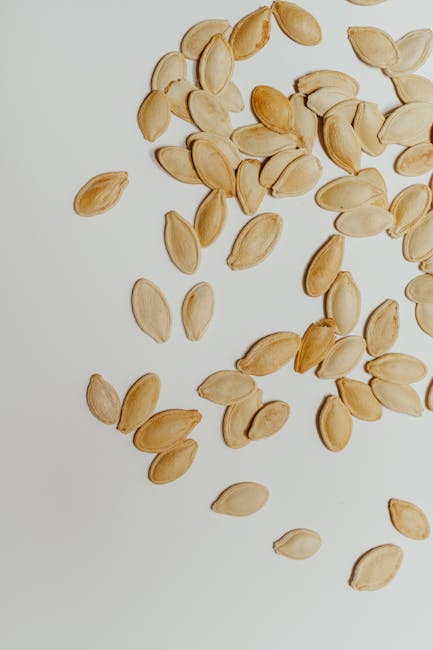Natural Remedies for Enlarged Prostate: A Comprehensive Guide to Relief and Prevention
Natural Remedies for Enlarged Prostate: A Comprehensive Guide to Relief and Prevention
An enlarged prostate, also known as benign prostatic hyperplasia (BPH), is a common condition affecting men as they age. Characterized by an increase in the size of the prostate gland, BPH can lead to bothersome urinary symptoms such as frequent urination, weak urine stream, urgency, hesitancy, and nighttime urination (nocturia). While medical interventions like medication and surgery are available, many men seek natural remedies to manage their symptoms and improve their quality of life. This comprehensive guide explores various natural approaches to alleviate BPH symptoms and promote prostate health.
Understanding Benign Prostatic Hyperplasia (BPH)
Before diving into natural remedies, it’s crucial to understand BPH. The prostate gland, located below the bladder, surrounds the urethra, the tube that carries urine from the bladder. As men age, the prostate often grows, potentially obstructing the urethra and causing urinary problems. While BPH is not cancerous, it can significantly impact a man’s daily life and well-being. The exact cause of BPH is not fully understood, but hormonal changes associated with aging play a significant role.
Natural Remedies for BPH Symptom Relief
Numerous natural remedies have shown promise in managing BPH symptoms. It’s important to note that these remedies are not a replacement for medical advice. Always consult your doctor before starting any new treatment, especially if you have underlying health conditions.

1. Dietary Changes: The Power of Nutrition
A balanced diet plays a vital role in prostate health. Certain foods can help reduce inflammation and improve urinary function. Consider incorporating these dietary changes:
- Increase consumption of fruits and vegetables: Rich in antioxidants and anti-inflammatory compounds, fruits and vegetables, particularly berries and cruciferous vegetables (broccoli, cauliflower, kale), can contribute to prostate health.
- Limit saturated and trans fats: These unhealthy fats can exacerbate inflammation and contribute to prostate enlargement. Choose lean protein sources and healthy fats like olive oil and avocados.
- Reduce caffeine and alcohol intake: Caffeine and alcohol can irritate the bladder and worsen urinary symptoms.
- Increase fiber intake: Fiber promotes healthy digestion and can help regulate bowel movements, which can indirectly influence prostate health.
- Hydration: Drink plenty of water throughout the day to help flush out toxins and support urinary function. However, avoid excessive fluid intake close to bedtime to reduce nighttime urination.
2. Herbal Remedies: Ancient Wisdom for Modern Problems
Several herbs have traditionally been used to support prostate health. However, more research is needed to confirm their effectiveness for BPH. Some commonly used herbs include:

- Saw Palmetto: One of the most well-known herbal remedies for BPH, saw palmetto berries are believed to inhibit the conversion of testosterone to dihydrotestosterone (DHT), a hormone that contributes to prostate growth. However, the quality of saw palmetto extracts can vary, so choose reputable brands.
- Pygeum africanum: Extracted from the bark of the African plum tree, pygeum africanum is believed to have anti-inflammatory and anti-proliferative effects on the prostate.
- Stinging Nettle Root: Studies suggest that stinging nettle root may help reduce inflammation and improve urinary flow in men with BPH. It’s often used in combination with other herbs.
- Pumpkin Seed Oil: Rich in zinc and other nutrients, pumpkin seed oil may offer some benefits for prostate health. However, more research is needed to confirm its efficacy.
Important Note: Always consult your doctor before using herbal remedies, as they can interact with medications and have potential side effects.
3. Lifestyle Changes: Promoting Overall Well-being
Lifestyle modifications can significantly contribute to managing BPH symptoms and improving overall health:
- Regular Exercise: Physical activity helps maintain a healthy weight, improves circulation, and can reduce inflammation. Aim for at least 30 minutes of moderate-intensity exercise most days of the week.
- Stress Management: Chronic stress can exacerbate BPH symptoms. Incorporate stress-reducing techniques like yoga, meditation, or deep breathing exercises into your daily routine.
- Weight Management: Maintaining a healthy weight can reduce pressure on the prostate and improve overall health.
- Adequate Sleep: Getting enough sleep is crucial for overall health and well-being. Aim for 7-8 hours of quality sleep per night.
- Quit Smoking: Smoking is linked to various health problems, including prostate cancer. Quitting smoking is a crucial step towards improving your overall health.
4. Other Natural Approaches
Beyond the remedies mentioned above, other approaches may provide some relief:

- Acupuncture: Some studies suggest that acupuncture may help relieve BPH symptoms, but more research is needed.
- Prostate Massage: Although controversial, prostate massage may help relieve some symptoms, but should only be performed by a healthcare professional.
Preventing Prostate Enlargement
While aging is a primary factor in BPH, certain lifestyle choices can help reduce the risk of developing significant symptoms or slow the progression of the condition:
- Maintain a healthy weight: Obesity is linked to an increased risk of BPH.
- Eat a balanced diet rich in fruits, vegetables, and whole grains: A healthy diet supports overall prostate health.
- Engage in regular physical activity: Exercise helps maintain a healthy weight and reduces inflammation.
- Manage stress effectively: Chronic stress can negatively impact prostate health.
- Limit alcohol and caffeine intake: These substances can irritate the bladder and worsen urinary symptoms.
- Quit smoking: Smoking increases the risk of various health problems, including prostate cancer.
When to See a Doctor
While natural remedies can offer relief for some men, it’s crucial to seek medical attention if you experience persistent or worsening urinary symptoms. These symptoms could indicate BPH or other underlying conditions. Your doctor can accurately diagnose the problem and recommend the most appropriate treatment plan.
Conclusion
Natural remedies can play a valuable role in managing BPH symptoms and promoting prostate health. However, it’s essential to approach these remedies responsibly and consult your doctor before making any significant changes to your treatment plan. A combination of natural approaches and medical advice can provide the most effective and comprehensive management of BPH.






